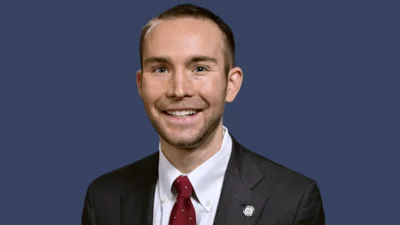Robert O. Davies President | Central Michigan University
Robert O. Davies President | Central Michigan University
The Central and Western Area Health Education Center (AHEC) emphasizes training primary care physicians dedicated to serving underserved communities. AHEC initiatives aim to develop and maintain a health professions workforce prepared to deliver high-quality care in a transforming healthcare delivery system.
Collaborating with health profession colleges at four regional universities, AHEC connects educational and community resources to establish clinical training opportunities in rural and underserved areas. Through these community-based student education programs, more than 3,600 health professions students have gained clinical rotation hours in underprivileged communities.
AHEC also supports health professionals by identifying continuing education needs and connecting clinicians to training opportunities. An additional 8,000 medical professionals statewide have received continuing education training in behavioral health integration, telehealth, social determinants of health, and more.
Annually, AHEC collaborates with the Saginaw Chippewa Indian Tribe and the Bureau of Indian Affairs to present a Statewide Tribal Opioid Summit. “AHEC has played a vital role in the annual Statewide Tribal Opioid Summit,” says Carol Jackson, magistrate for the Saginaw Chippewa Indian Tribe. “AHEC’s team has greatly influenced the summit by reaching the targeted audiences necessary to provide awareness of the opioid epidemic that affects our local, rural and tribal communities across the state.”
The Central and Western AHEC also partnered with the Michigan Center for Rural Health, CMU Rural Health Equity Institute, and McLaren Central Michigan to present a Human Trafficking Educational Webinar Series in spring 2024. This free three-part virtual series was designed to strengthen awareness, action plans, and knowledge on combating human trafficking. Over 1,300 people registered for at least one session featuring insights from an author’s personal perspective, an FBI victim specialist, a healthcare professional, and other community support personnel.
The AHEC Scholars program has provided interdisciplinary supplemental classroom learning opportunities for 250 health professions students preparing to enter the workforce. This two-year program is part of a national initiative created to prepare health professions students to become leaders in primary care in rural and underserved areas. “My participation in the AHEC Scholars program has allowed me to recognize that cultural and social barriers directly impact the quality of care,” stated Bruke Abenet from Western Michigan University Homer Stryker M.D. School of Medicine’s family medicine residency program. He continued: “To bridge this gap, all healthcare professionals must question their role and obligation and find ways to promote health equity.”
The Area Health Education Center program developed by Congress in 1971 works to recruit, train, and retain a healthcare workforce committed to underserved populations. CMU’s College of Medicine is the host partner for the Central and Western Area Health Education Center which serves two geographic regions totaling 38 counties (23 rural and 15 urban). For more information about AHEC initiatives email MidCentralAHEC@cmich.edu.


 Alerts Sign-up
Alerts Sign-up